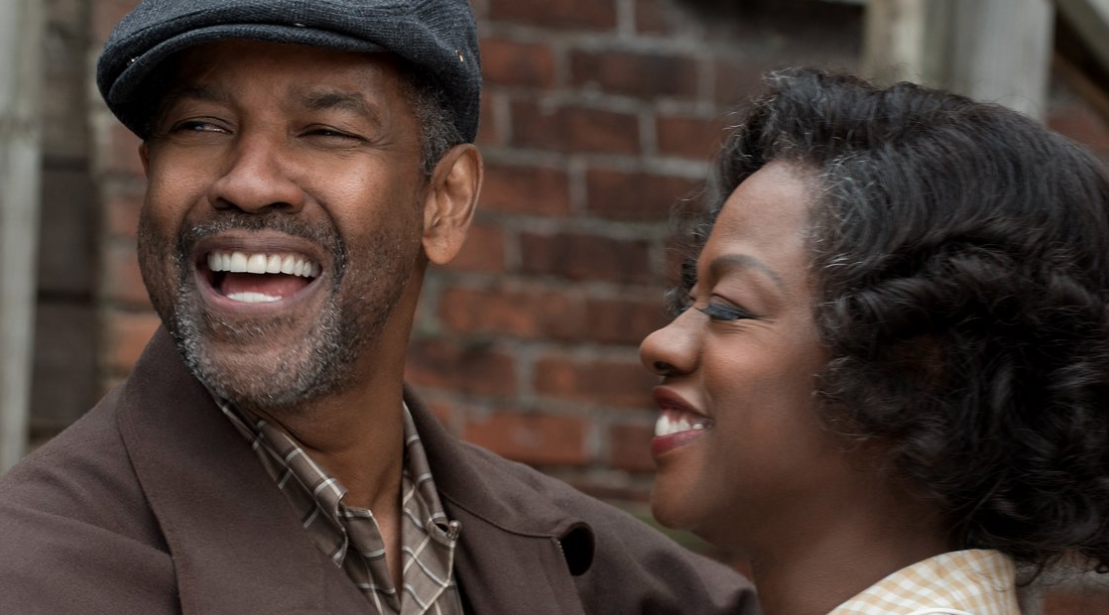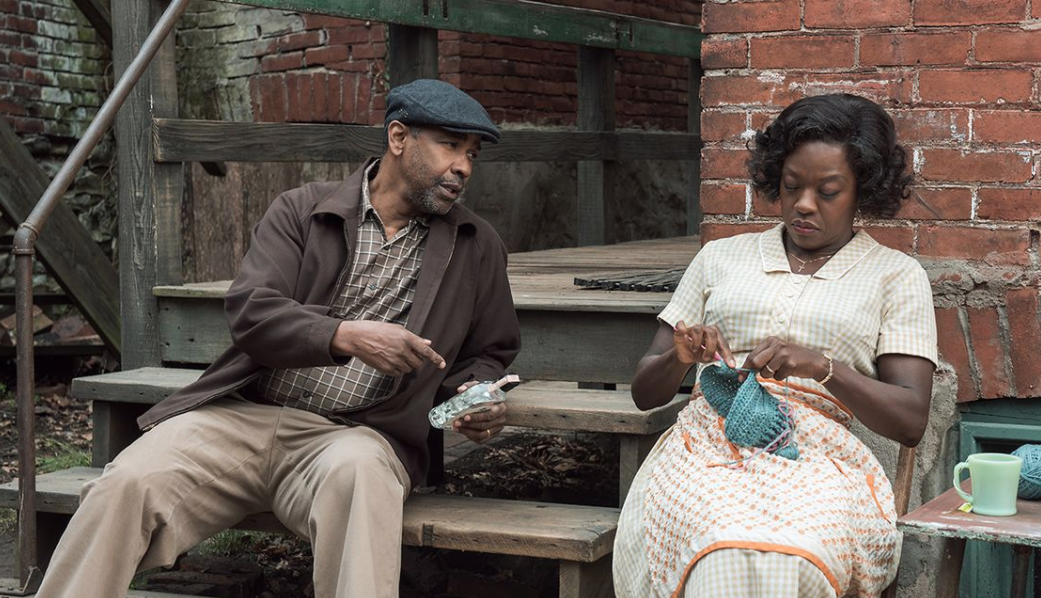The conflict between responsibilities and needs takes centre stage in Fences, Denzel Washington’s portrait of a former Negro League baseball great who’s channelling his disappointments into self-destructive behaviour in late 1950s Pittsburgh. “Stage” is a key word there, as Fences has been branded by its detractors with a scarlet letter “P” for “play.” Sure, you can tell this movie originated as a loquacious text written for the stage; the curtain first raised on August Wilson’s play in 1983. But there’s something distinctly if deceptively cinematic about the way Washington, as both director and star, wrestles with nothing less than the complete history of the African-American experience, sometimes almost literally, in just a spare few locations.
The second-to-last 2016 best picture nominee to be released in Australia (Hidden Figures bows next week but was reviewed here), Fences does indeed focus on Washington’s Troy Maxon, a 53-year-old rubbish collector who rarely stops to catch a breath, and only stops talking long enough to swig Friday’s pay cheque through a clear glass bottle in his backyard. Despite something of a tumultuous past, he’s still got friends, family and other well wishers willing to listen to whatever exaggerated personal recollection he sees fit to entertain them with, possibly for the dozenth time.

He’s hard both on his son from this first marriage, a budding musician (Russell Hornsby), and from his current marriage, a prospective football player (Jovan Adepo). He’s kind to his current wife, Rose (Viola Davis) – at least on the surface. But Troy may be starting to blame her for his current state of stagnation, which features a house but little extra in the way of creature comforts. If Jackie Robinson had broken baseball’s colour barrier just a few years earlier, before Troy reached retirement age, it might have been a different story. Taunting him is the baseball that hangs from the tree in his backyard, beckoning him to take a swing at it, with the knowledge that it’s tethered to that limb and can never really go anywhere. A truer metaphor for his life there could not be.
For a sizeable portion of its first hour, Fences does possess something of a loose, stagey quality that causes a viewer to question where it’s going or what it’s even about. Screen time is consumed by heaps of Washington dialogue, much of it ebullient, a smaller percentage of it melancholy, and all of it rambling and sprawling in nature. Much of the convivial vibe between the characters is established here, particularly the decades-long friendship with the fellow rubbish collector who indulges him, Jim Bono (Stephen Henderson). And there are moments when the exposition comes on a bit thick, when conversations that would have transpired years before are hauled out as though the information is new to everyone involved.
There are heavy implications that the extended Maxon clan is what it has become as a result of the struggles of the American black experience as a socioeconomic phenomenon. One tale that does not seem particularly tall is how good Troy was at baseball, a skill that would have earned him great riches if only the major leagues had integrated earlier. Instead of enjoying the fruits of a legendary career that might have actually paid him something, Troy is celebrating a promotion to driving a truck instead of dumping rubbish bins into its rear, and squabbling with his 34-year-old son about whether to loan him ten dollars.

It’s been a while since Washington has poured himself into a role like he has with this one. Although we never find out who garnered the second most Oscar votes, it seems likely that only Casey Affleck is preventing him from a taking home a third statue later this month. In a career in which he’s played the hero countless times, Washington has won Oscars for roles that have showcased his darker side – Private Silas Trip in Glory and Detective Alonzo Harris in Training Day. Troy Maxon slots in nicely next to those two as Washington follows the character into truly unlikable spaces. Troy is a force of nature, and like any hurricane, he takes down innocent property and souls when the wind starts to blow. That said, it would be hard to walk away from Fences without concluding that the greatest example of craft belongs to the also-nominated Viola Davis. She’s a more stable character, in Troy’s shadow almost by necessity, but when Troy’s selfishness punishes her loyalty, she shatters us with the poignancy of her reaction.
At 122 minutes, Fences is quite long for a stage adaptation, but the exposure to Troy’s life and day-to-day struggles ends up feeling generous rather than exorbitant. This film burrows into one deeply imperfect life that touches the surrounding characters in different ways – both with caresses and fists. As much as the film damns Troy Maxon for his obvious faults, it treasures him as a complicated sample of the human race – a black man, but any man, really. Any person, really. It recognises that we are all struggling to find that balance between what we want to do and what we must do, and just because we frequently fail, we are none of us lost causes.